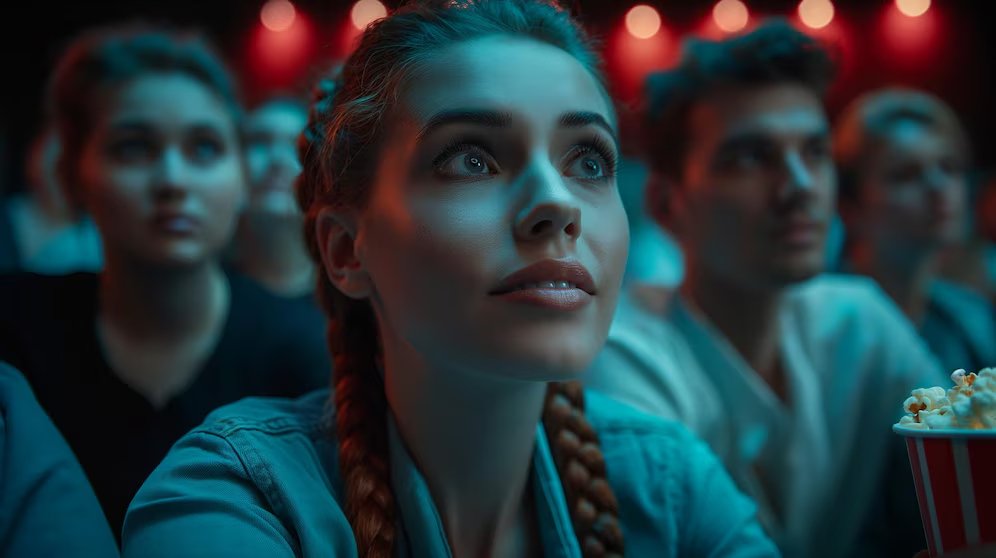Psychological thrillers have become a significant and popular genre in movies, captivating audiences with their intense plots and complex characters. This article explores the reasons behind the popularity of psychological thrillers in cinema.
Engaging Storylines
One of the primary reasons psychological thrillers are so popular is their engaging storylines. These films often revolve around intricate plots that keep viewers guessing. The suspenseful nature of these stories creates a sense of urgency, making it difficult for audiences to look away. The unexpected twists and turns in the narrative keep viewers on the edge of their seats, eager to see what happens next. This element of surprise is a key factor in drawing audiences to psychological thrillers.
Complex Characters
Psychological thrillers often feature complex characters who are deeply flawed and multifaceted. These characters typically grapple with their inner demons, making them relatable to viewers. Audiences are drawn to stories that explore the human psyche, especially when they involve characters facing moral dilemmas or psychological struggles. The depth of these characters adds richness to the narrative, allowing viewers to connect with their experiences and emotions.
Exploration of Fear
These films delve into the exploration of fear, tapping into universal anxieties that resonate with many people. Psychological thrillers often tackle themes such as paranoia, obsession, and the fragility of sanity. By confronting these fears through storytelling, audiences can experience a safe form of terror. This exploration allows viewers to reflect on their own fears and anxieties, making the experience both thrilling and thought-provoking.
Unpredictability

The unpredictability of psychological thrillers is another reason for their popularity. Viewers appreciate films that challenge their expectations and keep them guessing until the very end. The use of unreliable narrators or unexpected plot twists adds layers of complexity to the story, making it difficult for audiences to anticipate outcomes. This unpredictability enhances the overall viewing experience, as audiences are constantly engaged and invested in uncovering the truth behind the narrative.
Mind Games
Psychological thrillers often involve mind games, where characters manipulate each other’s perceptions and realities. This element creates a tense atmosphere that captivates viewers. The psychological manipulation depicted in these films raises questions about trust, reality, and human nature. Audiences are intrigued by the intricacies of human relationships and how they can be twisted by fear or desire.
Cultural Reflection

These films frequently serve as a reflection of societal issues or cultural anxieties. Psychological thrillers often address themes such as mental health, violence, and societal pressures, prompting discussions about important topics. By exploring these issues through a thrilling narrative lens, filmmakers can engage audiences in meaningful conversations while entertaining them at the same time.
Escapism
Psychological thrillers provide a form of escapism for viewers. In a world filled with everyday stressors, these films allow audiences to immerse themselves in a different reality filled with suspense and intrigue. The adrenaline rush experienced while watching a psychological thriller can be exhilarating, offering a temporary escape from mundane life. This escapism is appealing to many moviegoers seeking excitement and engagement.
Cinematic Techniques

Filmmakers often employ various cinematic techniques to enhance the psychological impact of these stories. Creative camera angles, unsettling soundtracks, and clever editing contribute to building tension and atmosphere in psychological thrillers. These techniques immerse viewers in the narrative, heightening their emotional response and engagement with the film.
Star Power
The presence of well-known actors can also contribute to the popularity of psychological thrillers. Many successful films in this genre feature acclaimed actors who bring depth and authenticity to their roles. Audiences are often drawn to movies starring their favorite actors, increasing interest in psychological thrillers as a whole.
Genre Blending
Psychological thrillers often blend elements from other genres, such as horror, drama, or mystery. This genre blending creates a unique viewing experience that appeals to a broader audience. By incorporating various elements from different genres, filmmakers can attract fans from multiple backgrounds who enjoy suspenseful storytelling.
Also Read : How Can Myths And Superstitions Be Debulk?
Conclusion
In summary, psychological thrillers have gained immense popularity in movies due to their engaging storylines, complex characters, exploration of fear, unpredictability, mind games, cultural reflection, escapism, cinematic techniques, star power, and genre blending. These elements combine to create an enthralling viewing experience that resonates with audiences on multiple levels. As filmmakers continue to push boundaries within this genre, it is likely that psychological thrillers will remain a staple in cinema for years to come.
FAQs
1. What is a psychological thriller?
A psychological thriller is a genre of film or literature that focuses on the mental and emotional states of characters, often involving suspense, tension, and complex plots.
2. What makes psychological thrillers popular?
They are popular because they engage audiences with intense storylines, complex characters, and themes that explore fear and the human psyche.
3. What are common themes in psychological thrillers?
Common themes include paranoia, obsession, memory, identity, and the struggle between sanity and insanity.
4. Can you name some famous psychological thrillers?
Yes! Some well-known psychological thrillers include “Psycho,” “Gone Girl,” “The Silence of the Lambs,” and “Shutter Island.”
5. How do filmmakers create suspense in psychological thrillers?
Filmmakers create suspense through unexpected plot twists, unreliable narrators, and atmospheric elements like music and lighting.
6. Are psychological thrillers based on real events?
Some psychological thrillers are inspired by true stories or real-life events, while others are purely fictional.
7. Who are some famous authors of psychological thrillers?
Famous authors include Gillian Flynn, Stephen King, and Patricia Highsmith.
8. What should I watch if I enjoy psychological thrillers?
If you enjoy psychological thrillers, you might also like mystery films, crime dramas, or horror movies that focus on character psychology.
9. Why do people enjoy watching psychological thrillers?
People enjoy watching them because they provide an adrenaline rush, provoke thought about human behavior, and allow exploration of fears in a safe environment.
10. How can I write a psychological thriller?
To write a psychological thriller, focus on creating complex characters, building suspense gradually, incorporating plot twists, and exploring deep emotional themes.





